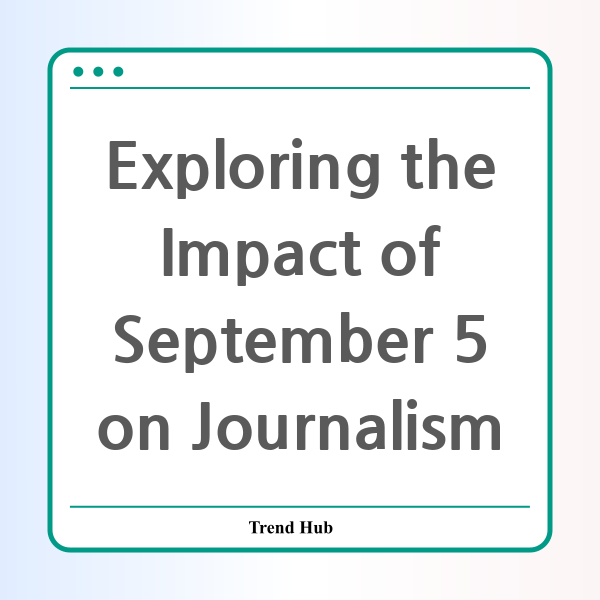* This website participates in the Amazon Affiliate Program and earns from qualifying purchases.

What happens when the world watches live as a crisis unfolds? The gripping story of the 1972 Munich Olympics hostage situation sheds light on the origin of contemporary media coverage of terrorism. In the film September 5, we witness a historic event that was broadcasted live to an audience of 900 million viewers, forever changing the landscape of television journalism.
Directed by Tim Fehlbaum, September 5 not only recounts the harrowing events involving the Black September Organization’s hostage-taking of members from the Israeli Olympic team but also explores the ethical dilemmas faced by the media in covering such tragedies. The film compresses the actual 22-hour ordeal into a tightly woven 94-minute narrative, encapsulating the tension between the urgency to be the first to report and the ethical responsibility to get the facts right.
This film stands out because it marks a pivotal moment in history—the first live broadcasting of a terrorist act. The visceral reaction of audiences worldwide was unprecedented, raising many ethical questions about how media outlets handle such crises. The decision to go live brought about significant repercussions, not only for the victims and their families but also for the integrity of journalism.
The Ethical Dilemmas of Live Coverage
As the events unfolded, ABC’s coverage had to navigate numerous challenges, balancing the need for information with respect for the hostages. The documentary-style dramatization reveals the chaos within the newsroom, showcasing a range of characters from producers to anchors, each grappling with their roles in a moment of national and international crisis.
Fehlbaum’s portrayal of the period is dark and atmospheric, reflecting the foggy memory of the 1970s while providing insight into the industry’s transformation. The strategic decisions made during the coverage of the hostage crisis illustrated the inherent conflicts that exist within media organizations. The film’s examination of how hierarchies impacted journalistic integrity is particularly poignant, highlighting the complex relationship between news broadcasting and viewer engagement.
Revolutionizing Television Journalism
September 5 signifies a turning point for television journalism. Prior to this incident, sports, news, and entertainment were generally seen as separate entities. The Munich tragedy blurred these lines, paving the way for a new era where sensationalism became intertwined with news coverage. This film interrogates the historical implications of that shift, prompting viewers to consider how media representations of crisis have continued to evolve.
Fehlbaum’s cinematic approach acts as a critique of contemporary media practices, illustrating how the values and practices established during this time have led to a pervasive culture of sensationalism in journalism. By highlighting the internal conflicts within ABC during the crisis, the film emphasizes that journalistic goals can conflict with ethical responsibilities, leading to a loss of public trust in media.
Questions for Contemporary Media
As we watch September 5, it stirs up a myriad of questions relevant to today’s media landscape. How are we governed by the need for immediate information? Are we, as consumers, complicit in the sensationalism that often overshadowed journalistic integrity? The film serves as a reflective inquiry into how we consume news and its impact on our understanding of historical events.
Fehlbaum challenges viewers to reflect on the trajectory of media coverage of political and social issues since 1972. With the advent of digital media, the speed and scope of information dissemination have drastically changed the landscape even further. It invites us to scrutinize the narratives presented to us and the motives behind them.
In conclusion, September 5 is more than just a film about a historical event; it is a critical examination of how media shapes our perception of reality, particularly during crises. As we navigate an age of information overload, it’s essential to reflect on the lessons from our past and consider the future of journalism and its ethical implications.
* This website participates in the Amazon Affiliate Program and earns from qualifying purchases.